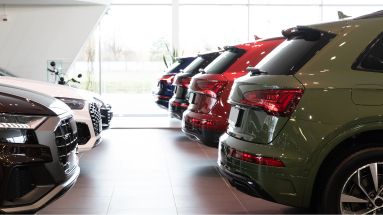There are a lot of factors to look at when purchasing a new car, such as mileage, price, bodywork and much more. But before you even think of buying, you should check the time of the year.
Some periods of the year are better for buying a car for several reasons that we will discuss in this article. These tips will save you money on buying a car, whether it’s a new or a used car, so keep reading to save.
Seasons
Seasons do seem to impact when you should purchase a car. Generally speaking, new cars have a slow sale rate Between May to June and November to December, and buyers tend to wait for the new registration period to get these new shiny plates.
So this could help you in your quest to buy yourself a car.
A key date to note down is the last few days of June. We say this because dealers will usually try to sell off their stock to make room for their new registered cars for that year.
The same goes for December, although people know more about these dates as they are close to the new year.
Dealers are focused on quarters sticking to the numbers they were aiming for, incentivising them to sell more cars at the end of each quarter so that December may be a safe option.

Dealership Stock
Getting a deal on a car may coincide with how much stock the dealer has. They will likely be willing to deal with you if they feel they have too many cars and need to sell.
However, knowing when dealers are in this situation isn’t easy. You may tell the dealer if they are overly friendly and want you to make a purchase. You should never feel pressured into a deal.
Keep It Late
Sales targets are essential to any business and even more so with dealerships.
The end of each quarterly target will see many salespeople eager to sell more cars to keep their numbers up, and they are generally willing to strike a good deal if this is the case.
Midweek Wins
As with all businesses, weekends are always the busiest time of the week. This is especially true for car dealerships. People work all week, so the weekend may be the only time they can view some cars.
You are more likely to receive more attention from a salesperson at quieter times, so you will have more time to ask about cars. You may also even get a better price at these off-peak hours.
It could also give you more time to inspect the car and take it for a test drive so you can fully make up your mind.
Trends
If you are interested in purchasing a car, you should be keeping up to date with the latest sales trends.
Sales numbers are available monthly, and if they are continuously falling for a few months, you will be in a solid position to get a good deal.
When car sales fall, dealers may be eager to eliminate excess stock, getting you more for your money.
Understanding Seasonal Fluctuations
In the ever-changing automotive market landscape, seasonal fluctuations play a pivotal role in determining the price tags you see in car showrooms. To navigate this complex terrain successfully, one must have a firm grasp of the underlying factors contributing to these seasonal price variations. Let’s delve deeper into the nuances that govern these changes:
Market Demand Dynamics
Understanding the ebb and flow of market demand is crucial when buying a car. Different car types witness varying levels of demand as the seasons change. For instance, convertibles are more sought after during the sunny summer months, while SUVs might see a spike in demand during winter. Awareness of these dynamics can help you pinpoint the right time to purchase.
Dealer Inventory Management
Dealers often adjust their inventory according to seasonal trends, which in turn influences the pricing of cars. During off-peak seasons, dealers might offer discounts to clear their stock and make room for higher-demand models. Keeping an eye on dealer promotions and stock clearance sales can potentially save you a substantial amount.
New Models
You should research this model if you are very interested in a particular car, such as a Volkswagen Golf.
If you know that a new Golf model is coming out, this is an excellent time to get a better deal on a Golf. Dealers may want to eliminate their older models to accommodate the newer and shinier models.

Type of Car
Another factor that will influence how much you pay is the type of car you want to buy, depending on the year’s time.
If you are looking at an SUV, it usually works out cheaper in the Summer as they’re in less demand than in the Winter months.
This is also true for a convertible. You will pay much less for one in Winter when it’s cold than in the Sunny Summer months when you can see the benefits of the convertible.
Make a Purchase
If you consider even one of these steps, you will save some money. Most of these tips focus on purchasing from a dealership, but you may still be able to get some deals online.
When buying a car from a private seller, it is not as easy to know if they’ll give a deal, and they also don’t offer any guarantee.
Tips for Negotiating a Good Deal
Embarking on the journey to purchase a car requires knowledge and the skill to negotiate a favourable deal. Here, we equip you with actionable strategies to ensure you get the best bang for your buck:
Research and Preparation
Before stepping into a dealership or contacting a private seller, arm yourself with ample research. Understand the car’s market value you are eyeing and be prepared to negotiate based on facts and figures, not just the listed price.
Timing Your Purchase
Timing can be everything when it comes to buying a car. Consider purchasing at the end of a financial quarter when dealers are keen to meet their sales targets, potentially offering you a better deal.
Kennco.ie is here to support motorists with excellent car insurance quotes to help you get on the road.
